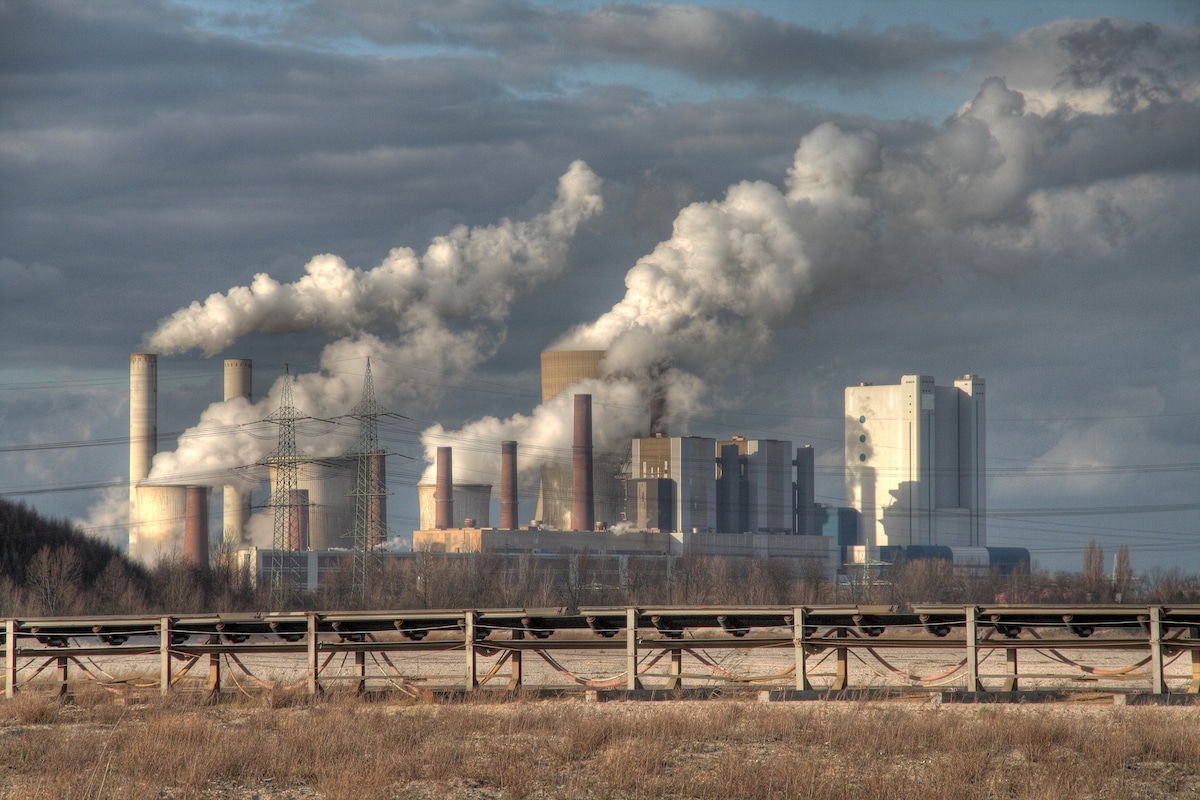More Than 60% of the Biggest Fossil Fuel Companies Are Not on Track to Meet 1.5°C Goal, Study Finds

 Why you can trust us
Why you can trust us
Founded in 2005 as an Ohio-based environmental newspaper, EcoWatch is a digital platform dedicated to publishing quality, science-based content on environmental issues, causes, and solutions.
Researchers from Australia, the United States and the United Kingdom have recently found that more than 60 percent of the 142 largest gas, oil and coal companies are not on track to limit global warming to 1.5 degrees Celsius compared to pre-industrial levels, wrote two of the researchers from The University of Queensland, Saphira Rekker and Belinda Wade, in The Conversation.
The research team used a new method to determine if fossil fuel companies were in line with the 1.5 degrees Celsius target that used production budgets rather than complicated calculations of greenhouse gas emissions.
They found that between 2014 and 2020, all fossil fuel sectors went over their production budgets by more than half: gas by 63 percent, oil by 64 percent and coal by 70 percent.
“Limiting the global average temperature rise to 1.5 °C requires an unprecedented reduction in fossil fuel use, along with large-scale deployment of CO2 capture and storage,” the authors of the study wrote. “To track the fossil fuel industry and companies against 1.5 °C-consistent pathways, we propose a new methodology that complements existing methodologies in four main ways: (1) it uses publicly available data; (2) focuses on absolute fossil fuel production (as a proxy for embedded emissions) rather than carbon intensities associated with their use; (3) includes coal that is commonly excluded; and (4) is applicable regardless of whether the company has set a target.”
The study, “Evaluating fossil fuel companies’ alignment with 1.5 °C climate pathways,” was published in the journal Nature Climate Change.
The fossil fuel producers’ budgets are the production levels that are necessary to limit planetary warming to 1.5 degrees Celsius under the “middle-of-the-road scenario” of the Paris Agreement.
In The Conversation, Rekker and Wade wrote that freely available information is needed in order to understand the climate impact companies are having so they can be held accountable. The results of their research are available here: Are you Paris compliant?.
The conditions of compliance with the Paris Agreement were laid out by the researchers in an earlier paper. They include the base year of an entity’s measure of progress being identical to the year the decarbonization scenario begins. The pathway must also either be consistent with 1.5 degrees Celsius or “well below” a two degrees Celsius limit, as the Paris Agreement states.
Also, the only pathways that should be used are those that begin in or before 2015.
In The Conversation, Rekker and Wade said that, in order to keep within their budgets, action deficits that have occurred since the base year should be made up for by companies.
“The not-for-profit SBTi is the primary point of call for companies wanting to develop emission reduction targets. It’s a partnership between CDP (which runs the global system of environmental impact disclosures), UN Global Compact, World Wildlife Fund and World Resources Institute,” Rekker and Wade said. “We have now applied our more rigorous approach to fossil fuel companies. Using publicly available production data from the Climate Accountability Institute allows us to assess a large number of companies.”
The researchers used four pathways to limit the average global temperature increase to 1.5 degrees Celsius, including the 2020 Net Zero Emissions pathway from the International Energy Agency, as well as three that the Intergovernmental Panel on Climate Change set in 2014.
“Not only did we find the majority of these companies are not currently aligned, but the outlook is also troubling. If recent trends (2010-2018) continue, the companies would produce up to 68% (coal), 42% (oil) and 53% (gas) more than their cumulative production budgets by 2050,” Rekker and Wade wrote. “Companies can use our method to see how much they need to reduce production to be aligned. They can also see how much carbon capture and storage is required under a certain 1.5℃ pathway.”
Rekker and Wade’s method provides relatively straightforward information to enable everyone to know how well or poorly companies are doing at meeting climate goals.
“Tracking how companies are performing empowers all stakeholders – including governments, investors and individuals like you and me – to advocate for climate action and make climate-safe decisions. For example, investors can use this information to decide which companies to invest in and advocate for change where required. Governments can integrate this information into corporate guidelines for climate action,” Rekker and Wade said in The Conversation.
Subscribe to get exclusive updates in our daily newsletter!
By signing up, you agree to the Terms of Use and Privacy Policy & to receive electronic communications from EcoWatch Media Group, which may include marketing promotions, advertisements and sponsored content.

 233k
233k  41k
41k  Subscribe
Subscribe 




